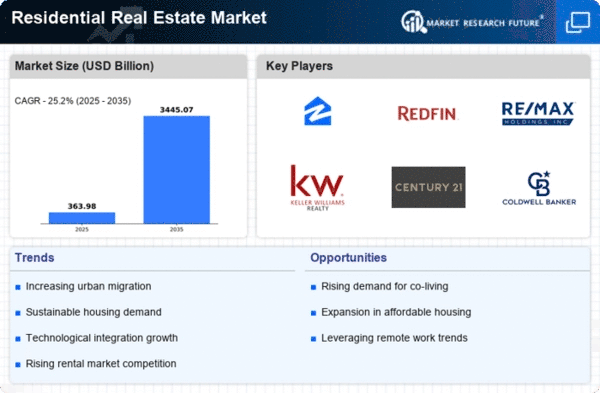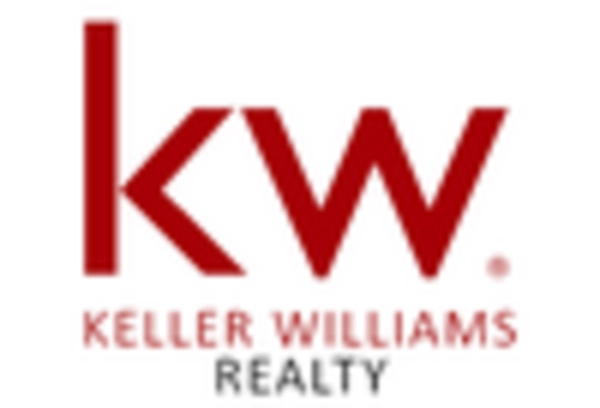Market Share
Residential Real Estate Market Share Analysis
In the ever-changing landscape of the Residential Real Estate Market, companies strategically deploy various market share positioning strategies to establish a robust presence and gain a competitive edge. A fundamental strategy involves a comprehensive understanding of customer preferences and lifestyle trends. Real estate developers and agents focus on market research to identify the evolving needs and desires of homebuyers, tailoring their offerings to match current lifestyle trends, amenities, and preferences. By providing homes that align with the contemporary lifestyle, companies aim to position themselves as leaders in the market, meeting the demand for residences that offer both comfort and modern living experiences.
Cost leadership is another pivotal strategy embraced by companies in the Residential Real Estate Market. This approach revolves around optimizing construction processes, sourcing cost-effective materials, and achieving economies of scale. Becoming a cost-effective provider enables companies to offer competitive pricing for their residential properties, attracting a broader customer base. Cost-effective solutions not only appeal to budget-conscious homebuyers but also provide companies with a strategic advantage against pricing pressures and market fluctuations, ensuring sustained profitability and market resilience.
Market segmentation plays a crucial role in the positioning strategies of residential real estate developers. Recognizing the diverse needs of different demographic segments, companies tailor their property offerings to address specific market segments. This may involve developing affordable housing for first-time buyers, luxury residences for high-end markets, or senior living communities for retirees. Effective segmentation enables companies to optimize their market share within specialized niches, providing housing solutions that precisely meet the needs of different target audiences.
Strategic collaborations and partnerships are instrumental in enhancing market share positioning within the Residential Real Estate Market. Companies often form alliances with financial institutions, architectural firms, and urban planners to strengthen their project financing, design capabilities, and community planning. Collaborations can lead to joint development projects, shared resources, and the creation of residential communities that appeal to a broad spectrum of homebuyers. Partnering with key stakeholders allows companies to leverage collective strengths, share expertise, and collectively address the complexities of the residential real estate industry more effectively, contributing to increased market share.
Sustainability and green building practices are emerging as significant factors influencing market share positioning strategies in the Residential Real Estate Market. With an increasing emphasis on environmentally friendly and energy-efficient homes, developers are incorporating green building technologies, sustainable materials, and energy-efficient designs. Residential real estate companies positioning themselves as environmentally responsible entities can gain favor among customers who prioritize sustainable living, contributing to the overall sustainability of the industry.
Moreover, a robust digital presence is crucial in today's technologically driven real estate market. Residential real estate companies leverage digital marketing, online platforms, virtual property tours, and social media to connect with potential homebuyers, showcase their properties, and facilitate transactions. An effective online presence enables companies to reach a broader audience, provide detailed property information, and engage with clients directly, enhancing brand visibility and trust in the competitive residential real estate market.


















Leave a Comment